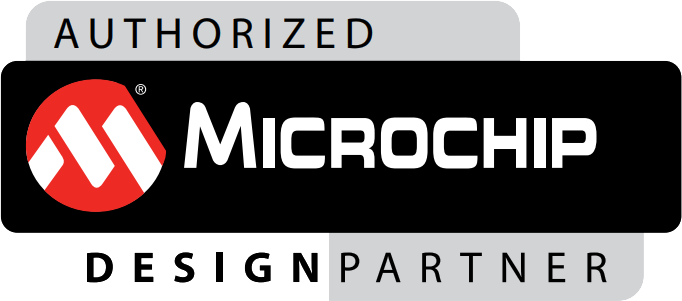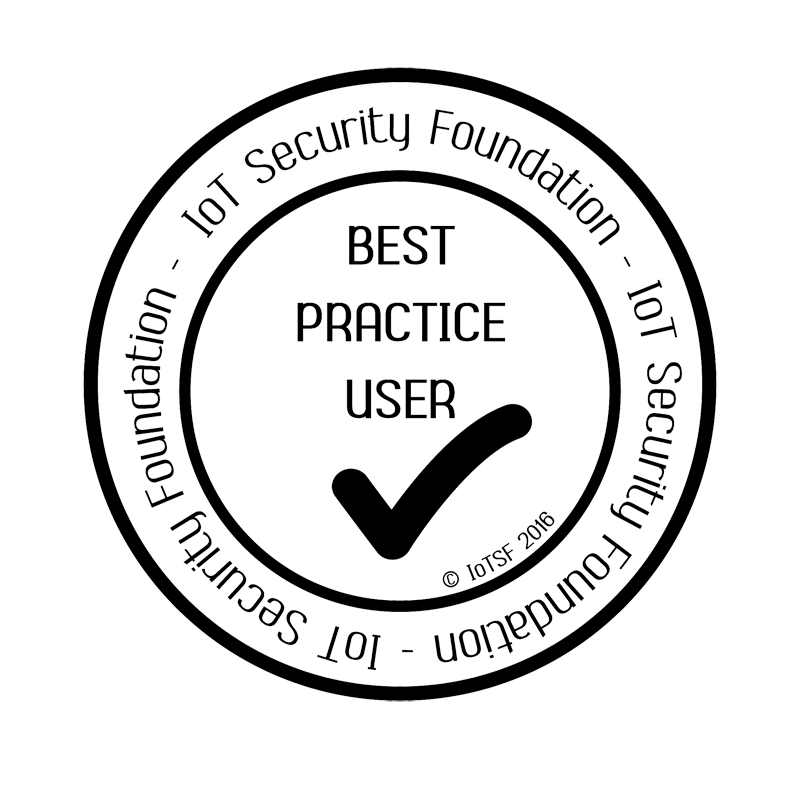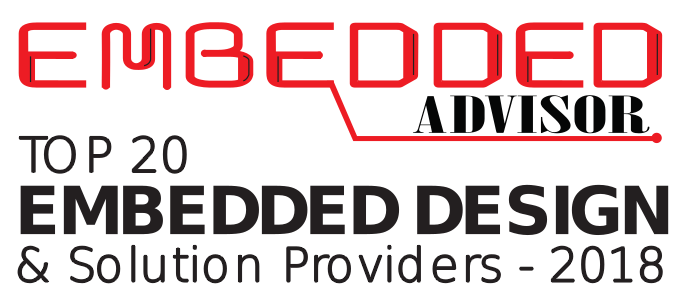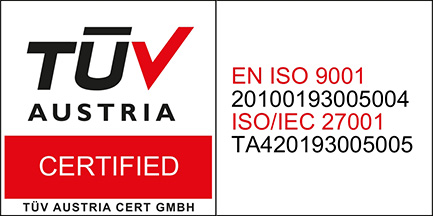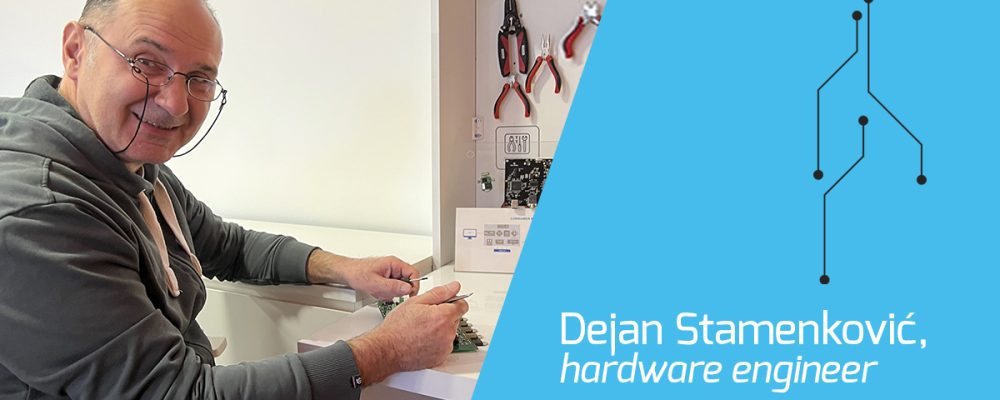
What does the job of a hardware engineer at ARS Embedded Systems look like?
There is no better way to get to know ARS than through conversations with our employees. Dejan Stamenković is a hardware engineer at ARS Embedded Systems with over thirty years of experience and agreed to share his story and perspective on the hardware industry and this profession.

1. A hardware engineer is by definition a person who designs, develops and tests a new
device. This is someone who works with physical components, but must also have a good understanding of embedded software development. Dejan, what does the job of a hardware engineer look like in practice?
People think of a hardware engineer as someone who deals with schematics, soldering, and circuit boards. The most important thing is that the hardware engineer has to see the whole
and take care of several things simultaneously in one process. When working on one component, he has to think about the other five at the same time. It is clear that a prerequisite for performing this job is first of all a good knowledge of electronics, but I will try to explain in a few steps what the job of a hardware engineer looks like:
- The first step must be getting to know the requirements and needs of the consumer/buyer/work orderer and agreeing with colleagues before starting the project; Many
people overlook this step, but it is crucial. - Then follows the creation of the concept and architecture, testing and confirmation of the concept for the early elimination of technical risks.
- The second step is designing the device, i.e. electrical schematics.
- The third step is making the board (PCB).
- The fourth step is assembling (this is when we insert/solder chips, capacitors, resistors and everything that makes up an electric circuit onto an empty board).
- The fifth step is prototype testing, additional design iterations and product refinement, certification and certification tests, release into production.
2. What skills must a hardware engineer possess or develop?
A HW engineer must:
- know how to listen and understand the demands and needs of the economy/industry
- be systematic – to see the whole and control many things at the same time
- be creative in moderate doses; A dose of creativity is required when making the whole project as well as when making the circuit board, but there is documentation for most of the
components used in electronics. There is generally a reference design for chips. If the scheme changes much more than recommended such a solution will certainly not work. Don't ask me
how I know! - solve problems and not get upset about them. 🙂
3. What products do you develop at ARS?
At ARS, we develop solutions for various industries, so in our portfolio we have solutions that are used in medicine, sports, physiotherapy, industry, agriculture. Specifically, I am currently
working on two very interesting projects: SUJI, a device that helps athletes recover faster from injury, but also finds clinical application in improving the quality of life of people with certain diseases.
The second project is a device for monitoring water quality and mineral dosing, the purpose of which is to enable better water quality at the source itself, in order to reduce plastic waste, as well as CO2 emissions due to the transport of plastic bottles.
4. Which technologies do the devices you develop most often have to satisfy?
These are mainly Bluetooth, LoRa, WiFi, GSM, Ethernet, DDR3, I2C, SPI, digital electronics, and all types of sensors.
5. Dejan, you have been in this business for a long time. Does it happen that when you design and develop a solution, even after all these years of experience, you make mistakes?
Only someone who does nothing makes mistakes, but I wouldn't call them mistakes. It is quite normal that in the design, development and testing process we have version one, version two,
version three. The fact that something doesn’t immediately work as it should is somehow normal and I don’t see it as a mistake but as a step in the development to a great solution. Even the most experienced sometimes make beginner’s mistakes, such as to turn the power supply upside down in speed. If there is no protection, something will burn. There is no hardware engineer who has not seen and felt white smoke at least once. That is why there is an anecdote in the world of electronics:
“Electronics run on white smoke! When it smokes and emits white smoke, it no longer works.” 🙂
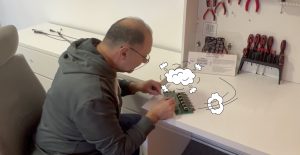
6. What are the opportunities for learning and development at ARS?
The conditions are excellent. The ARS company invests a lot in the professional and personal development of its employees. I will list only some of the trainings that are available to me
personally:
- training in the development of printed circuit boards,
- board routing training
- training on the use of Altium Designer software
- training for agile and scrum business methods
- training on device architecture and design according to IPC standards
- training on EMC and EMI certification for products on the market and board design methods to pass the certification
- various webinars on new technologies, methods of architecture and device design, use of Altium designer
I must also mention personal development trainings: about teamwork, how to be a good team member, how to be a team leader, communication trainings in the team and with clients, assertive communication trainings, as well as English language classes.
7. What is the atmosphere like in ARS?
ARS is a relatively small company. There are about 20 of us. That means we all know each other. That’s exactly what I like about ARS. This is a company where a person is important as an
individual and as a member of a team, and this is an advantage compared to large companies that are mostly oriented only to the result. Here, individual ideas are listened to and respected.
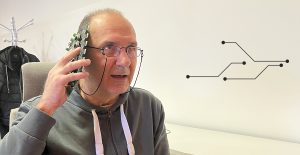
8. The hybrid work model is popular in the IT industry. Can a hardware engineer work from home or a remote location?
The ARS company allows its employees a hybrid work model, but my opinion is tha “it’s hard to solder remotely!” When I’m working on a concept or design, I can work from home, because it doesn’t require equipment, but I definitely enjoy picking up a soldering iron working with laboratory equipment, so I like to come to the office when I need to.
9. What does an interview for a hardware engineer job at ARS-ES look like?
A job interview is different for every position. Everyone goes through a mandatory interview with our HR, and the technical part of the interview is specific to each position. As I already
mentioned, ARS- is a small company and my opinion is that those who are employed by us do not go through the "seven circles of hell." Everything happens relatively quickly. What you need is to convince your colleagues that electronics is your passion, that you know how to do your job, or even if you don't know and you are a beginner that you are ready to learn and show a way of thinking that fits into the ARS culture.
10. What are the trends/forecasts when we talk about hardware development?
The rapid development of technology creates the need for hardware innovations, primarily new and improved chip architecture. In the next few years, innovations in storage, devices, chips
and other hardware devices will cause a new revolution in the IT world. Here are some examples from sources I follow (https://www.techrepublic.com/)
- The chips of the future will be significantly f
aster and significantly smaller – the chip size of the future is predicted to be 1 nm, and this is already something that is under development - More compact flash memory – technology continues to advance, delivering smaller and lighter laptops, tablets and other devices (new ways of vertically stacking the flash memory cell will save space, but the devices will also be smaller and thinner.
- Non-volatile memory – with non-volatile memory, computers can retrieve information even after being turned off and on again. In the future, we will see new forms of non-volatile memory that will allow data to be stored at lower cost and with less energy. This will allow smaller devices to store even more data.
- New chip architectures will improve machine learning performance over what is currently available with graphics processing units (GPUs). These performance improvements will dramatically improve data transfer and machine learning and analytics execution.
- Mobile devices will have enhanced security – in the future it will be possible to use secure encrypted memory space on standard CPUs.
- Drones – Unmanned aerial vehicles (UAVs) will continue to push into commercial applications, whether it’s delivering packages, taking photos, or recording hard-to-access physical terrain. They will collect IoT data through sensors and channel it into central communications.
- Unmanned robots – robots can perform simple medical procedures, clean facilities and pick and pack items in warehouses. The intelligence in these automated machines will be further
increased as new technologies come in to collect everything that all the machines have learned into a central data bank that every machine can access. - Smart glasses, smart watches and a range of motion detection devices will be greatly improved and much more widely used.
- VR equipment will be easier to use – bulky headsets weighed down VR users and caused dizziness, leading companies to shy away from VR applications. That will change in the very
near future. - Local Energy Harvesting for Internet Access – with automation and the multitude of IoT devices being added to the Internet workload, new advanced technology will be needed to increase bandwidth.
11. What will be the demand for hardware engineers in the future and will this be an even more popular occupation than it is today?
This is a highly sought-after occupation and predictions are that it will remain so in the future. A growth of 5-10% is predicted in the next 10 years.

